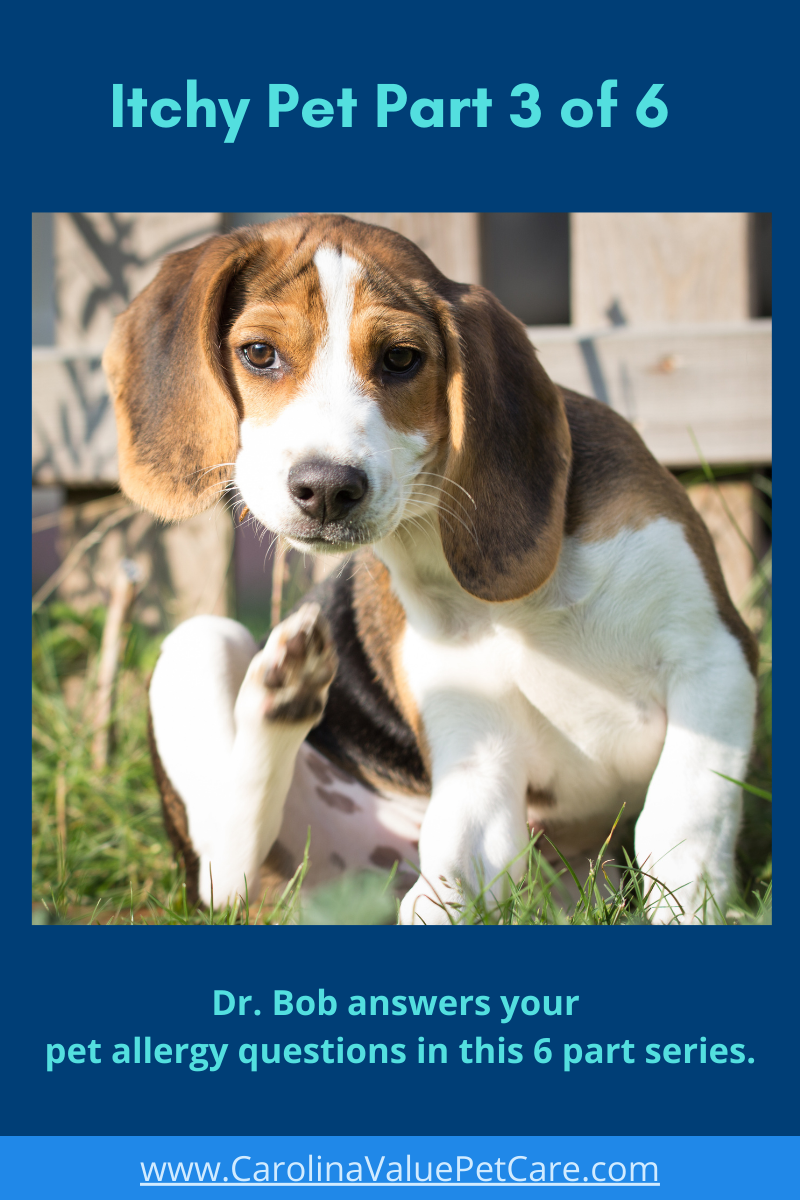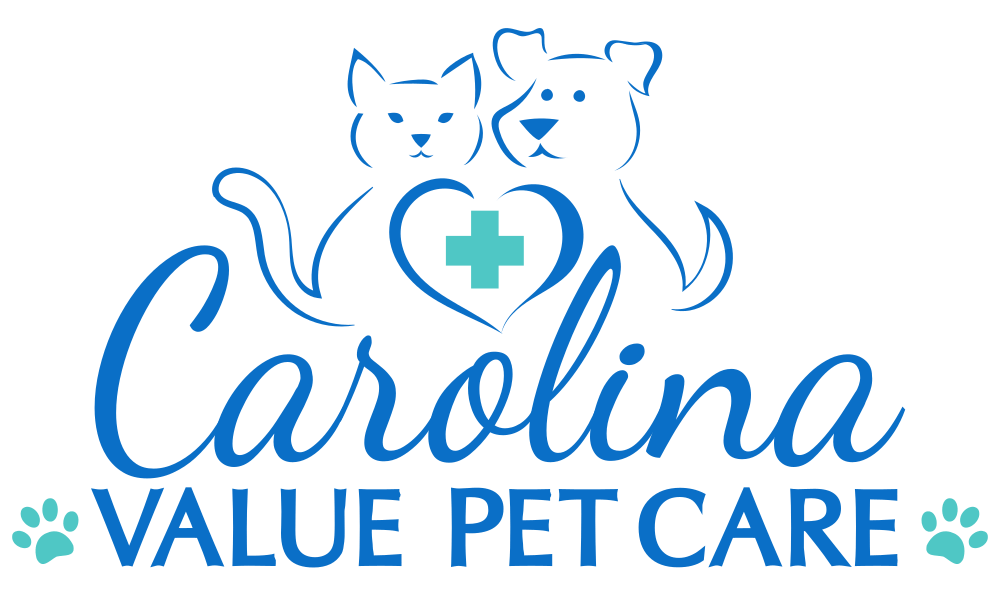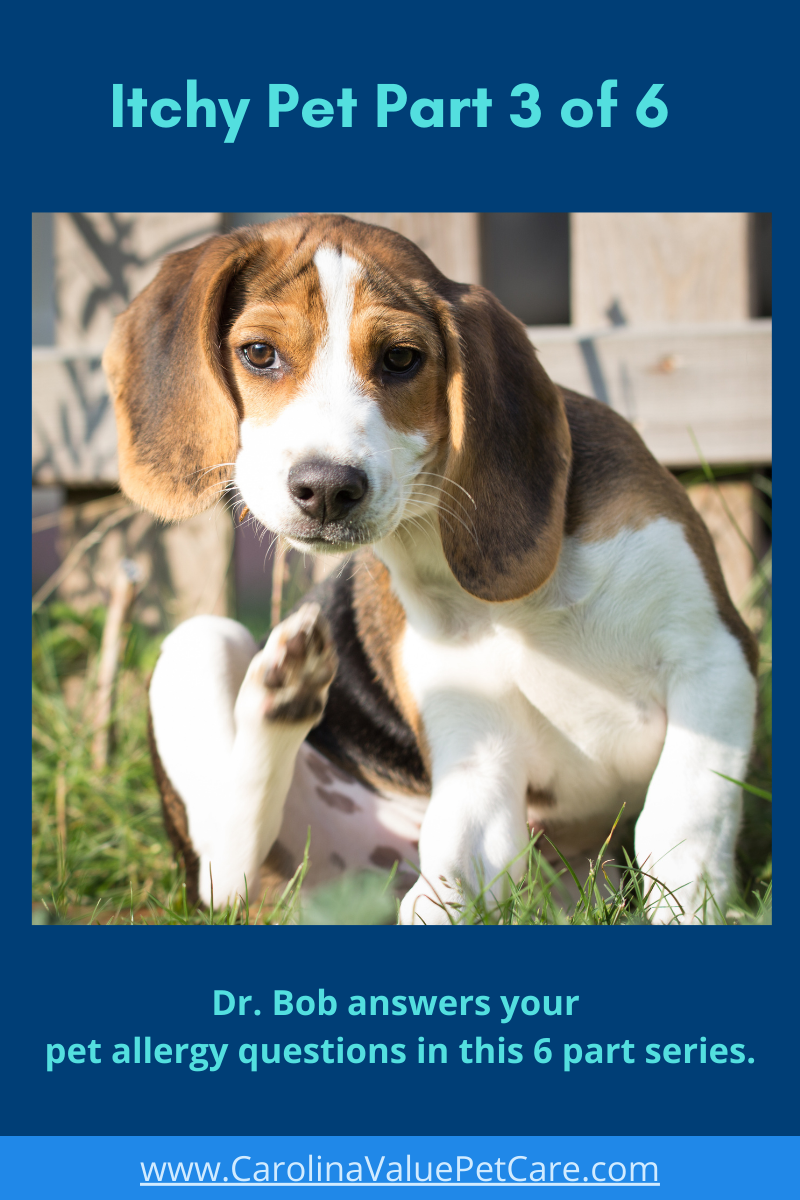
I truly wish we could wave a magic wand over a pet with allergies and make the itching and biting and licking quickly go away. But the reality leaves us frustrated at times, even while we celebrate the success of MOST pets in managing the problem. And let me emphasize that again: “managing” the problem. I wish we had a cure for allergies, but our goal is actually to manage them: to keep our pets as comfortable as possible during those periods when allergies flare up and result in terribly itchy pets.
Avoiding the cause of the problem is a practical step when it involves food. Simply change the diet to avoid the most likely ingredient(s) responsible for the itching. But when it comes to seasonal and environmental allergies, avoidance isn’t entirely possible.
However, simple steps such as frequently wiping down your pet with a damp wash cloth when coming back indoors can help. Frequent bathing, meaning 2 or 3 times a week can be extremely beneficial ~ if you have the time and patience to do it … as well as your pet’s cooperation.
Antihistamines such as Benadryl, Claritin, Zyrtec, Xyzal and Allegra are safe, but generally not effective.
Antibiotics and anti-fungals are necessary to treat those dogs that have an active skin infection.
For pets with suspected food allergies, choosing a diet that is most likely to give the best results often requires a consultation with us. Too often, pet parents change brands without considering what may be actually causing the allergy. And treats make a difference, too !
In many cases, I will give a cortisone injection to provide immediate relief. While cortisone has helped millions of itchy pets, we are limited in how often we should use it due to its side-effects.
The newest forms of management for allergies have emerged in the last 5 to 7 years. First came Apoquel, a tablet that is given when needed to provide relief from the itching, etc. More recently, we have had tremendous success with Cytopoint, an injection with virtually no side effects. We find that these medications work with about 80% of the dogs we use them with.
Immunotherapy (or Hypo-sensitization) is a very common form of allergy management in people, and is also available in pets. While we do not offer immunotherapy at Carolina Value Pet Care, there are times when I feel it is the best option for some pets. It does require allergy testing of the skin, so I recommend seeing a veterinary dermatologist to pursue this form of treatment.
We’ll take a closer look at Cytopoint and Apoquel in the next segment.
– Dr Bob Parrish @ Carolina Value Pet Care

